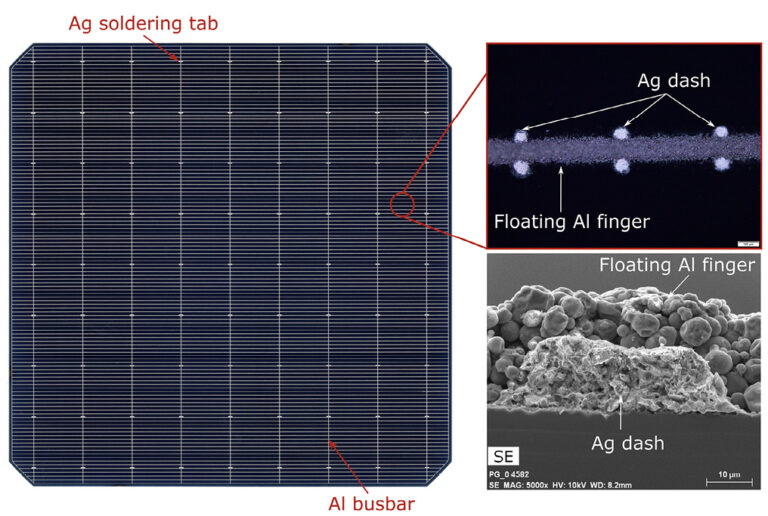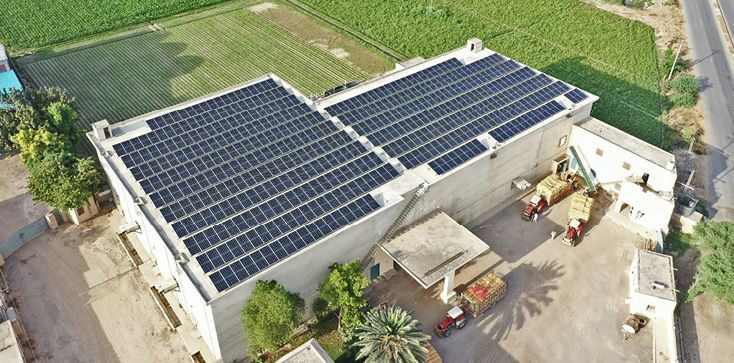New research from UNSW, published in July 2024, has proposed an established process to help further scale TOPCon solar.
The researchers say their approach to solar cell construction – outlined in Ultra-Lean Silver Screen-Printing for Sustainable Terawatt-Scale Photovoltaic, published in RRL Solar – could reduce TOPCon silver content from between 12 mg/W and 15 mg/W down to 2 mg/W. That would keep the solar industry’s silver consumption below 20% of global supply as PV expands.
The paper’s authors have claimed 24.04% cell efficiency using their approach, and said that cells manufactured in Chinese partner facilities have been measured at 26.7% efficiency.
The study included partners from metal paste production and PV manufacturing. It was led by Brett Hallam, associate professor at the UNSW School of Photovoltaic and Renewable Energy Engineering.
“The industry, generally, has not been thinking ahead,” said Hallam. In 2021, he conducted research on the technology PV manufacturers should adopt beyond passivated emitter rear contact (PERC) solar. The study, “Design Considerations for Multi-terawatt Scale Manufacturing of Existing and Future Photovoltaic Technologies: Challenges and Opportunities Related to Silver, Indium and Bismuth Consumption,” was published in Energy and Environmental Science.
In this paper, Hallam dismissed expectations that more efficient heterojunction (HJT) solar would replace PERC, arguing that the indium required in the indium tin oxide layer – a transparent, conductive oxide – would only allow for 200 GW of production before depleting the world’s indium reserves.
“There’s always a big push for efficiency of solar cells,” said Hallam, when people see “the cliff that’s coming with the exponential growth in installations needed to mitigate climate change.”
The team’s eureka moment came in 2020, thanks to the PhD research of Yuchao Zhang, a co-author of both aforementioned papers.
To continue reading, please visit our pv magazine Australia website.
This content is protected by copyright and may not be reused. If you want to cooperate with us and would like to reuse some of our content, please contact: editors@pv-magazine.com.




By submitting this form you agree to pv magazine using your data for the purposes of publishing your comment.
Your personal data will only be disclosed or otherwise transmitted to third parties for the purposes of spam filtering or if this is necessary for technical maintenance of the website. Any other transfer to third parties will not take place unless this is justified on the basis of applicable data protection regulations or if pv magazine is legally obliged to do so.
You may revoke this consent at any time with effect for the future, in which case your personal data will be deleted immediately. Otherwise, your data will be deleted if pv magazine has processed your request or the purpose of data storage is fulfilled.
Further information on data privacy can be found in our Data Protection Policy.